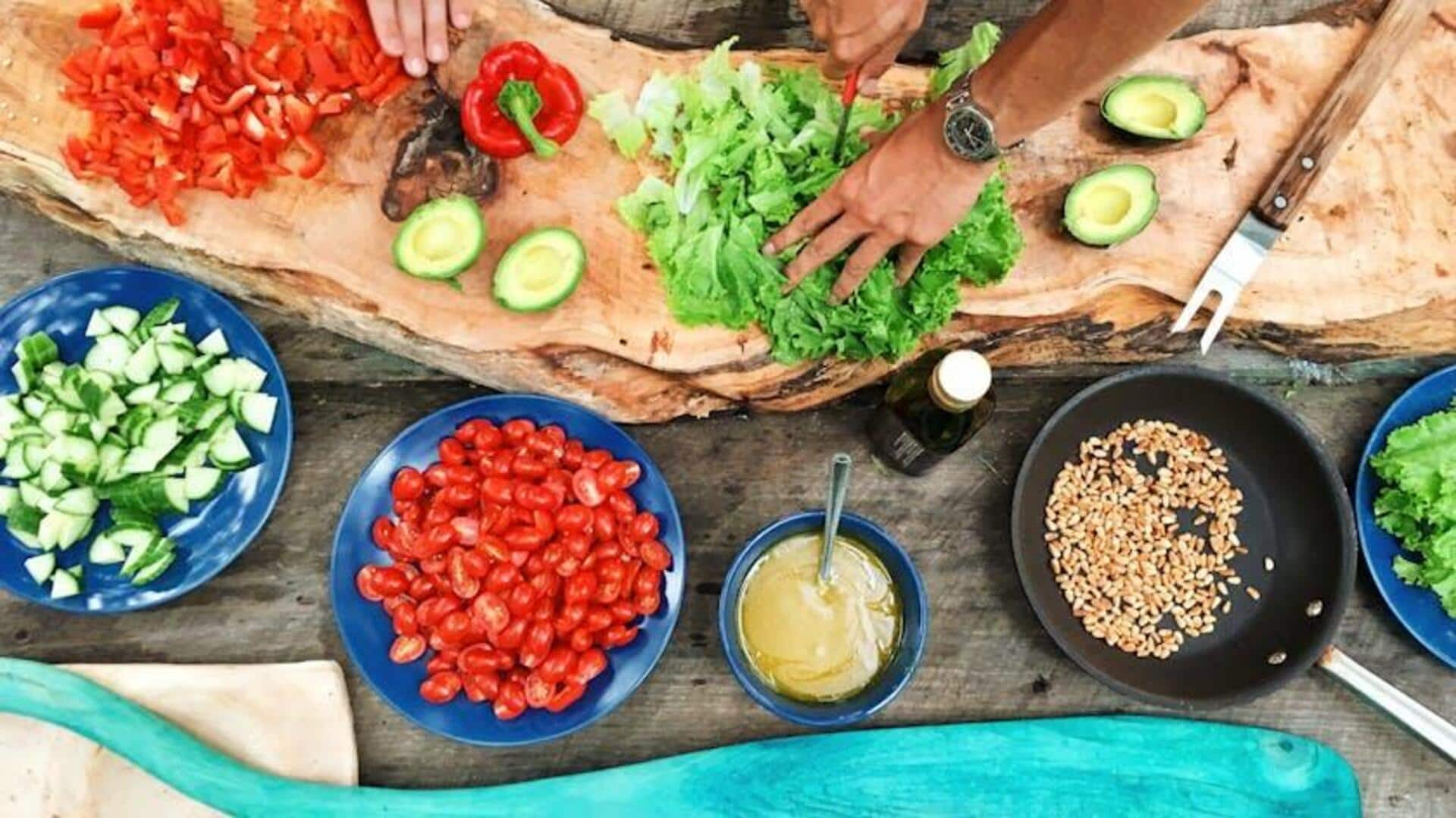
Host plant-based cooking classes in Africa like a pro
What's the story
Africa's vibrant landscape offers a wealth of fruits, vegetables, and grains perfect for plant-based cooking classes. With the growing global trend toward healthier and more sustainable diets, Africa's unique indigenous crops present a fantastic opportunity for culinary creativity. This article provides a comprehensive guide to organizing successful vegan cooking classes that showcase the flavors and nutritional benefits of African cuisine.
Audience
Identify your target audience
Before you start rolling out those cooking classes, pinpointing your audience is key. Are they beginners looking to dip their toes in the vegan pool or seasoned swimmers aiming to dive deeper into plant-based gourmet? Customizing your content to their specific needs and interests guarantees stronger engagement. Use surveys or market research to gauge the likes, dislikes, and dietary limitations of potential attendees.
Location
Choose the right location
The location plays a huge role in the success of your cooking classes. It should be easily reachable, have a well-equipped kitchen, and enough space for students to work comfortably. Consider community centers, schools with home economics classrooms, or even commercial kitchens that are available for rent. Make sure the space feels inviting and is conducive to learning.
Curriculum
Develop a comprehensive curriculum
Your curriculum should provide a comprehensive blend of theoretical knowledge and hands-on experience encompassing plant-based nutrition, ingredient selection, meal planning, and culinary techniques specific to African cuisine. Include recipes that highlight the rich diversity within African countries utilizing locally available ingredients. Plus, it would be helpful to have classes on understanding food labels for those keen on the packaged vegan products available in Africa.
Marketing
Market your classes effectively
Strong marketing will help you pull in attendees for your cooking classes. Leverage social media platforms such as Facebook, Instagram, and Twitter to reach a wider audience. Crafting engaging content like teaser videos of recipes, testimonials from previous attendees, or emphasizing the health benefits of plant-based diets can generate interest. Partnering with local influencers or food bloggers who promote healthy eating can further amplify your reach.
Tools
Equip yourself with essential tools
Having the proper tools is essential for a smooth cooking class experience. Make sure there are plenty of utensils for everyone to use, including safe chopping knives and blenders or food processors for recipes that require blending, like smoothies or soups. Investing in good quality cookware enhances the experience and demonstrates a commitment to value.